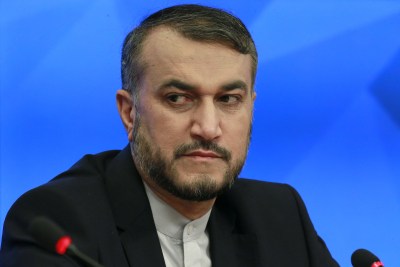
On March 10, Iran and Saudi Arabia have agreed to restore diplomatic relations with the help of Chinese-brokered talks in Beijing. The agreement, however, will not take effect immediately. Rather, the normalization of ties between the two regional powers and strategic rivals will take place in a gradual two-month process.
While concerns over the ability of the two parties to follow through are high, this significant agreement has generated several assumptions among political pundits around the world. While it is convenient to imply that this occurrence has expedited a changing world order, it is necessary to assess pragmatically the manner in which the current order will change based on the geopolitical realities of the Middle East today.
In recent years, US relations with key powers of the Middle East have taken a back seat because of a string of events that include the lack of US support for Saudi Arabia’s involvement in Yemen and its civilian nuclear-program ambitions, the limited response to the 2019 and 2022 drone attacks against the United Arab Emirates and Saudi Arabia, and Washington’s attempt to pressure Riyadh and Abu Dhabi to help lower oil prices amid the unfolding war in Ukraine.
These acts have, however, resulted in a rather proportional response from the Gulf countries including the decline of phone calls with President Joe Biden by the UAE and Saudi Arabia, the decision of the Riyadh-led OPEC+ to cut oil production, and the UAE hosting Syrian President Bashar al-Assad.
Amid such shifts in Washington’s relations with the Gulf region, China has been making significant inroads through its expanding economic capacity. China’s trade with the Middle East clearly outstrips that of the US.
Moreover, China’s non-interference approach toward the internal affairs of Middle Eastern countries adds to its significance as a practical partner.
Furthermore, as a rising great power, China is a major importer of energy resources. In 2021 alone, China imported 72% of its crude-oil consumption. Accordingly, the Middle East served as a crucial source given that it accounted for 50% of imports.
It is thus a logical step for both sides to deepen ties to maximize the value of the energy security partnership. In fact, Beijing has also cemented its partnership with Iran with the signing of a 25-year strategic cooperation agreement in 2021, which involves Chinese investments worth US$400 billion in exchange for discounted Iranian oil.
Consequently, the first ever China-Arab States Summit in 2022 has also added further impetus to the expansion of ties between China and the Middle East.
Given this context, Beijing’s ability to serve as a mediator for peace between Saudi Arabia and Iran adds another feather to its cap. However, to say that such developments will soon displace the role of the US in the Middle East against the backdrop of an emerging international order is a great simplification of the on-ground geopolitical realities of the region.
Traditional security remains a major pillar in the foreign policies of countries in the Middle East. Accordingly, the US has solidified its role as the traditional security provider of countries in the region, including Saudi Arabia.
More important, it remains the largest arms exporter to the kingdom, and the largest arms supplier to the greater region. While China has attempted to expand its arms sales to the Middle East, it remains significantly dwarfed by the US position. Moreover, public opinion in the region remains quite positive toward the importance of Washington as a strategic partner.
There is no indication that China seeks to replicate the US model of engagement in the region. Therefore, while China’s expanding strategic footprints in the Middle East are significant, they will not be enough to displace the overall position of the US in the region any time soon.
However, what the general trends do show is that as the international distribution of power continues to fluctuate toward the emergence of multipolarity, the role played by rising great powers such as China and India in the region will inevitably increase. This will provide more options for regional countries, which may further decrease and limit the attractiveness of the US as a partner in specific issue areas.

